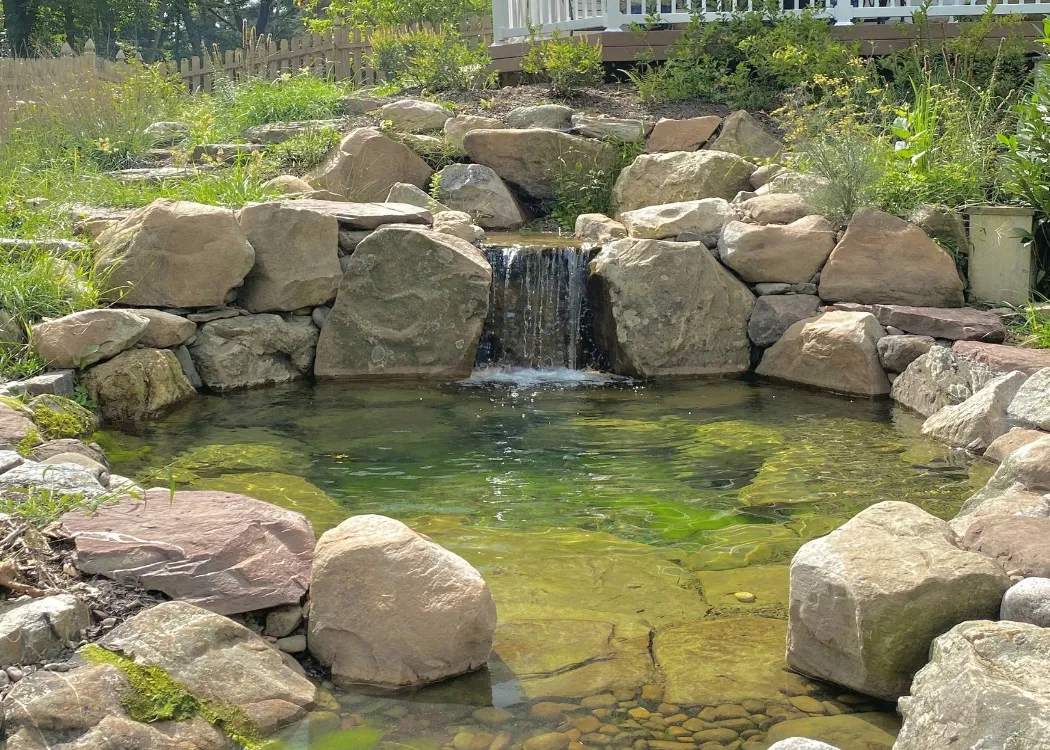
Ponds are beautiful, calming additions to residential landscapes, commercial properties, and natural habitats across Delaware. Whether tucked into a backyard in Wilmington or enhancing a public park in Dover, ponds contribute to biodiversity, aesthetic value, and even stormwater management. But maintaining a pond can be a challenge, especially if you’re concerned about the environmental impact of traditional methods.
If you’re wondering whether eco-friendly pond maintenance in Delaware, the good news is—yes, it absolutely is. In fact, more and more Delaware residents are turning to green pond care practices to protect local ecosystems, support native wildlife, and create healthier water features. This guide explores how to maintain your pond sustainably without sacrificing its beauty or functionality.
Why Go Eco-Friendly with Pond Maintenance?
Conventional pond care often relies on chemical treatments, artificial filtration, and invasive methods that can upset the natural balance of a pond’s ecosystem. Over time, this can lead to:
-
Poor water quality
-
Algae overgrowth
-
Harm to fish and amphibians
-
Runoff pollution into surrounding soil or waterways
Eco-friendly pond maintenance seeks to work with nature rather than against it, promoting long-term pond health while minimizing harm to the environment. In Delaware, this is especially important, given the state’s many wetlands, watersheds, and sensitive habitats.
1. Native Plants for Natural Filtration
One of the easiest and most effective eco-friendly practices is incorporating native aquatic plants. Plants like pickerelweed, arrowhead, blue flag iris, and soft rush are all native to Delaware and serve as natural filters. They absorb excess nutrients (like nitrogen and phosphorus), which helps control algae and keeps the water clearer.
Additionally, these plants provide shelter for fish and insects, stabilize pond edges to prevent erosion, and attract beneficial wildlife such as dragonflies, frogs, and pollinators.
2. Reduce or Eliminate Chemical Use
Many pond owners use algaecides or herbicides to treat overgrowth—but these chemicals can harm non-target species and leach into nearby soil or water systems. In Delaware, runoff from chemically treated ponds can find its way into local rivers like the Christina or Nanticoke, affecting water quality downstream.
Instead, eco-conscious property owners are opting for biological treatments like:
-
Beneficial bacteria: These naturally occurring microbes digest organic sludge and reduce nutrient buildup.
-
Barley straw: When decomposed in water, barley straw releases compounds that inhibit algae growth without harming fish.
-
Floating islands: These manmade plant platforms help shade the water, reduce surface temperatures, and compete with algae for nutrients.
3. Embrace Aeration—Naturally
Aeration is essential for healthy ponds. It keeps water moving, increases oxygen levels, and supports aquatic life. Instead of relying on high-energy, industrial aerators, Delaware pond owners can consider:
-
Solar-powered fountains or aerators: Ideal for reducing energy use, especially in remote or off-grid locations.
-
Waterfalls or streams: These features add oxygen while also enhancing the pond’s natural beauty.
-
Wind-powered aeration systems: Useful in open areas, these systems are quiet, sustainable, and low-maintenance.
4. Support Wildlife, Not Pests
Eco-friendly ponds are often teeming with life—but not all creatures are welcome. In Delaware, invasive species like mosquito fish or certain snails can unbalance the ecosystem. Instead, encourage beneficial species:
-
Frogs and toads naturally keep insect populations down.
-
Dragonflies feed on mosquitoes and add vibrant life to your pond.
-
Native fish (like golden shiners or sunfish) help control pests without disrupting local ecology.
Avoid stocking your pond with non-native species that may outcompete or harm local wildlife. Delaware’s Department of Natural Resources and Environmental Control (DNREC) provides resources on native and invasive aquatic species.
5. Compost and Mulch Responsibly
Organic matter like leaves, lawn clippings, and fertilizer can easily find their way into your pond—especially during fall or after rainstorms. In Delaware’s humid climate, this can rapidly lead to nutrient overload and algae blooms.
Some ways to avoid this include:
-
Installing a buffer zone of native grasses and shrubs around the pond to trap runoff.
-
Mulching flower beds carefully so excess material doesn’t wash into the water.
-
Composting away from the pond, and never using chemical fertilizers nearby.
6. Work with Local Eco-Friendly Pond Services
If DIY isn’t your thing, there are a number of pond maintenance companies in Delaware that specialize in organic or eco-friendly practices. These companies often offer:
-
Custom pond assessments with a sustainability focus
-
Natural algae control plans
-
Wildlife-safe cleaning and dredging
-
Planting and habitat restoration services
When choosing a pond service provider, ask about their approach to chemicals, wildlife support, and water conservation. Delaware is home to a growing network of green landscapers and conservation-minded professionals.
Final Thoughts: A Healthier Pond, A Healthier Delaware
Choosing eco-friendly pond maintenance isn’t just a trendy option—it’s a responsible way to care for your landscape while protecting Delaware’s rich ecosystems. Whether you’re a homeowner in Newark or a land manager in Sussex County, taking steps to “green” your pond care routine can have ripple effects far beyond your backyard.
Cleaner water, happier wildlife, and reduced maintenance costs are just a few of the many benefits. With the right approach—and maybe some help from local experts—you can enjoy a thriving pond that reflects your commitment to nature and sustainability.